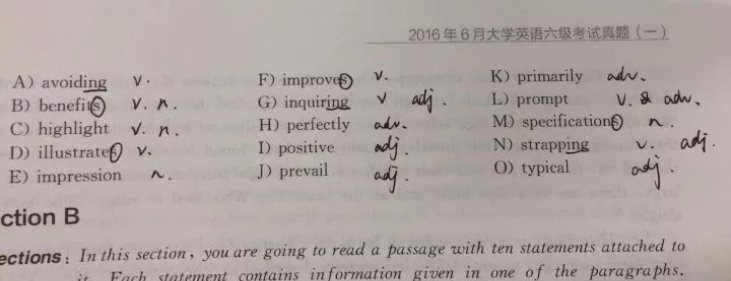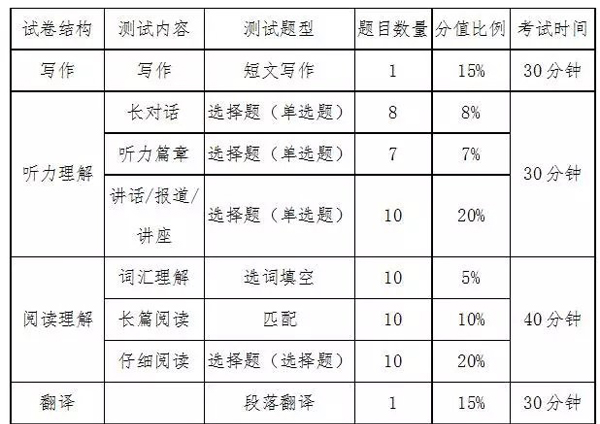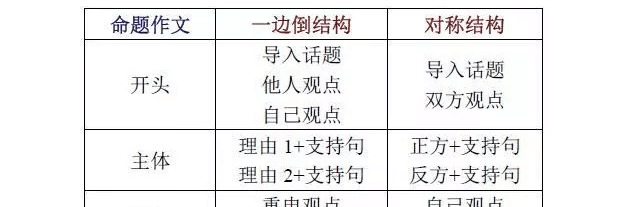LAST考试阅读笔记-第三讲-(3)
|
13. which one of the following best describes the organization of the last paragraph? (a) several alternative answers are presented to a question posed in the previous paragraph, and the last is adopted as the most plausible. (b) a question regarding the cause of the phenomenon described in the previous paragraph is posed, two possible explanations are rejected, and evidence is provided in support of a third. (c) a question regarding the phenomenon described in the previous paragraph is posed, and several incompatible views are presented. (d) a question regarding the cause of the phenomenon described in the previous paragraph is posed, and several contributing factors are then discussed. (e) several answers to a question are evaluated in light of recent discoveries cited earlier in the passage. 14. the author’s discussion of the political significance of the “wage relationship”(line 48) serves to 横读法:先读每个选项第一行,可排除几个,再度第二行,继续排除 (a) place the failure of seventeenth-century scientists to acknowledge the contributions of their technicians in the large context of relations between workers and their employers in seventeenth-century england. (b) provide evidence in support of the author’s more general thesis regarding the relationship of scientific discovery to the economic conditions of societies in which it takes place. (c) provide evidence in support of the author’s explanation of why scientists in seventeenth-century england were reluctant to rely on their technicians for the performance of anything but the most menial tasks. (d) illustrate political and economic changes in the society of seventeenth-century england that had a profound impact on how scientific research was conduced. (e) undermine the view that scientific discovery results from individual enterprise rather than from the collective endeavor of many workers. (跨区) 15. it can be inferred from the passage that “the clamor of seventeenth-century scientific rhetoric”(lines 39-40) refers to (a) the claim that scientific discovery results largely from the insights of brilliant individuals working alone (b) ridicule of scientists who were members of the english upper class and who were thought to demean themselves by engaging in the manual labor required by their experiments. (c) criticism of scientists who publicly acknowledged the contributions of their technicians. (d) assertions by members of the royal society of london that scientists themselves should be responsible for obtaining and recording experimental results. (e) the claim by boyle and his colleagues that the primary reason for scientific research is to discover evidence of divine truth in the natural world. book 1, reading 2, p32 historians generally agree that, of the great modern innovations, the railroad had the most far-reaching impact on major events in the united states in the nineteenth and early twentieth centuries, particularly on the industrial revolution. there is, however, considerable disagreement among cultural historians regarding public attitudes toward the railroad, both at its inception in the 1830s and reached the zenith of its popularity in the united states. in a recent book, john stilgoe(评述文的标志,纵观全文发现人名、书名多次出现,从而确定是评述文) has addressed this issue by arguing that the “romantic-era distrust” of the railroad that he claims was present during the 1830s vanished in the decades after 1880. but the argument he provides in support of this position is unconvincing. what stilgoe calls “romantic-era distrust” was in fact(△) the reaction of a minority of writer, artists, and intellectuals who distrusted the railroad not so much for what it was as for what it signified. thoreau and hawthorne appreciated, even admired, an improved means of moving things and people from one place to another. what these writers and others were concerned about was not the new machinery as such, but the new kind of economy, social order, and culture that it prefigured. in addition, stilgoe is wrong to imply that the critical attitude of these writers was typical of the period: their distrust was largely a reaction against the prevailing attitude in the 1830s that the railroad was an unqualified improvement. typical一词在阅读中往往十分重要,表示普遍性,出题往往与普遍性事实有关 stilgoe’s assertion that the ambivalence toward the railroad exhibited by writers like hawthorne and thoreau disappeared after the 1880s is also misleading. in support of this thesis, stilgoe has unearthed an impressive volume of material, the work of hitherto unknown illustrators, journalists, and novelists(小列举), all devotees of the railroad; but it is not clear what this new material proves except perhaps that the works of popular culture greatly expanded at the time.(反驳,釜底抽薪法) the volume of the material proves nothing if stilgoe’s point is that the earlier distrust of a minority of intellectuals did not endure beyond the 1880s, and, oddly, much of stilgoe’s other evidence indicates that it did. when he glances at the treatment of railroads by writers like henry james, sinclair lewis, or f.scott fitzgerald(小列举人名,只抓第一个即可), what comes through in spite of stilgoe’s analysis is remarkably like thoreau’s feeling of contrariety and ambivalence. (had he looked at the work of frank norris, eugene o’neill, or henry adams, stilgoe’s case would have been much stronger.) the point is that the sharp contrast between the enthusiastic supporters of the railroad in the 1830s and the minority of intellectual dissenters during that period extended into the 1880s and beyond. 虚拟语气在阅读中的作用: 委婉的负评价(如果……,不就好了吗?) 欲擒故纵反证法 7. the passage provides information to answer all of the following questions except: 否定信息题: a类选项:文章中的内容 b类选项:比文章里的内容多 c类选项:与文章里的内容相反(要选c类选项) (a) during what period did the railroad reach the zenith of its popularity in the united states? (b) how extensive was the impact of the railroad on the industrial revolution in the united states, relative to that of other modern innovations? (注意most一词) (c) who are some of the writers of the 1830s who expressed ambivalence toward the railroad? (d) in what way could stilgoe have strengthened his argument regarding intellectuals’ attitudes toward the railroad in the years after the 1880s? (e) what arguments did the writers after the 1880s, as cited by stilgoe, offer to justify their support for the railroad? |








